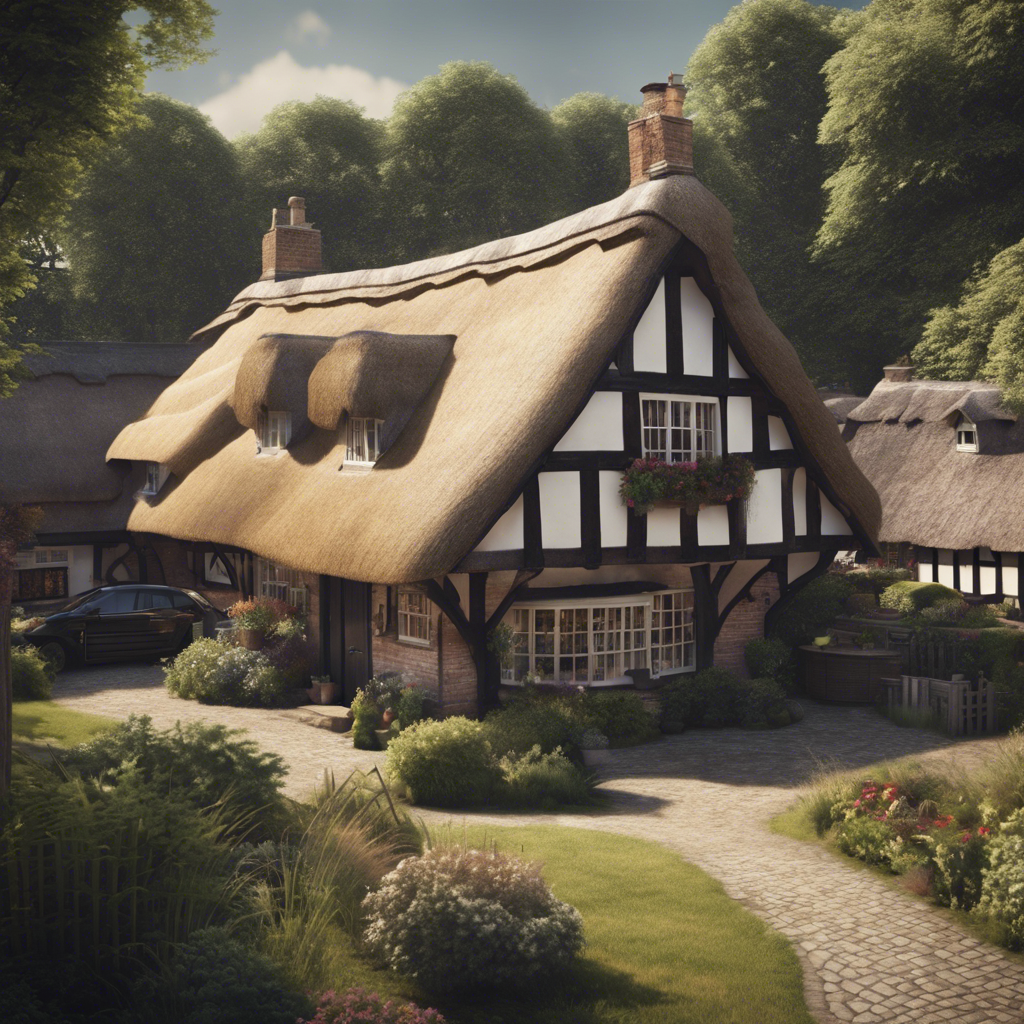Thatched roofs have long been a quintessential feature of the British countryside, offering a glimpse into the rich history and traditional architecture of the United Kingdom. These unique roofs, constructed using materials like straw, reeds, or heather, have adorned homes and buildings for centuries, creating a sense of charm and heritage that stands the test of time.
The Origins of Thatch Roofs
The tradition of thatching roofs has roots that date back to medieval times in the UK, a testament to the craftsmanship and resourcefulness of our ancestors. Thatching was a common roofing method due to the abundance of natural materials available, with each region developing its distinct style and techniques.

Craftsmanship and Sustainability
Thatching is not merely a roofing method; it is an art form that requires skill and precision. Thatchers meticulously layer and weave materials to create a waterproof and durable roof that can last for decades. Despite technological advancements in construction, thatched roofs continue to be valued for their sustainability, as they are a renewable resource with low environmental impact.
Preservation and Resurgence
While the popularity of thatched roofs declined with the rise of more modern construction materials, there has been a recent resurgence in their appeal. Many homeowners are choosing to restore or build new properties with thatched roofs, recognizing their beauty and historical significance. Preservation societies and organizations are working diligently to safeguard this traditional craft for future generations to enjoy.
Iconic Thatched Structures in the UK
Several iconic buildings and landmarks in the UK boast stunning thatched roofs, adding to their allure and character. From quaint cottages in rural villages to historic pubs and grand estates, these structures showcase the diverse range of styles and designs that thatching can offer. Exploring these architectural marvels provides a glimpse into the past and a deeper appreciation for the craftsmanship of thatched roofing.
Modern Adaptations and Innovations
As the demand for thatched roofs grows, so does the need for modern adaptations and innovations to enhance their longevity and efficiency. Thatchers are incorporating new techniques and materials to improve the insulation and fire resistance of thatched roofs, ensuring they meet contemporary building standards while preserving their traditional charm.
Embracing Tradition in the Modern Age
In a world driven by rapid development and technological advancements, the allure of thatched roofs lies in their ability to connect us to our heritage and the natural world. The sight of a thatched cottage nestled amidst rolling hills or a thatched pub welcoming patrons evokes a sense of nostalgia and warmth that transcends time. By embracing this ancient tradition, we honor the craftsmanship of the past while embracing sustainability and cultural preservation.
Conclusion
Thatched roofs stand as a symbol of tradition, craftsmanship, and sustainability in the modern landscape of the UK. Their enduring appeal and timeless beauty continue to captivate people around the world, offering a glimpse into a bygone era while highlighting the importance of preserving our architectural heritage. As we look to the future, let us cherish and protect these iconic structures that serve as a reminder of our rich cultural legacy.
By delving into the history and significance of thatched roofs in the UK, we gain a deeper appreciation for the artistry and ingenuity that went into creating these enduring landmarks.
With a blend of tradition and innovation, the legacy of thatched roofs lives on, weaving together the past and the present in a seamless tapestry of heritage.
Please contact us if you are looking to replace your thatched roof. Place an order before October 1 and we guarantee installation in Summer 2025!
Click here for your free quotation: www.reedroofing.co.uk/contact.

Comments